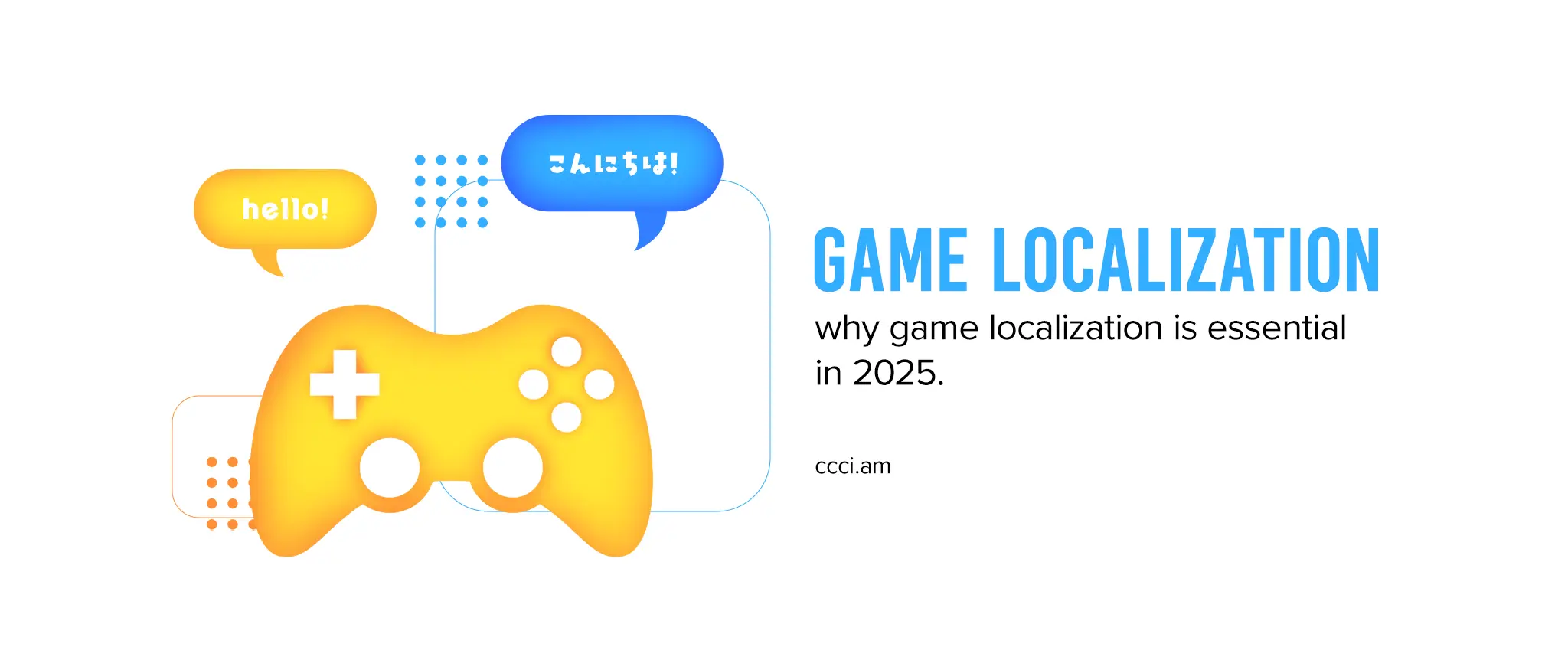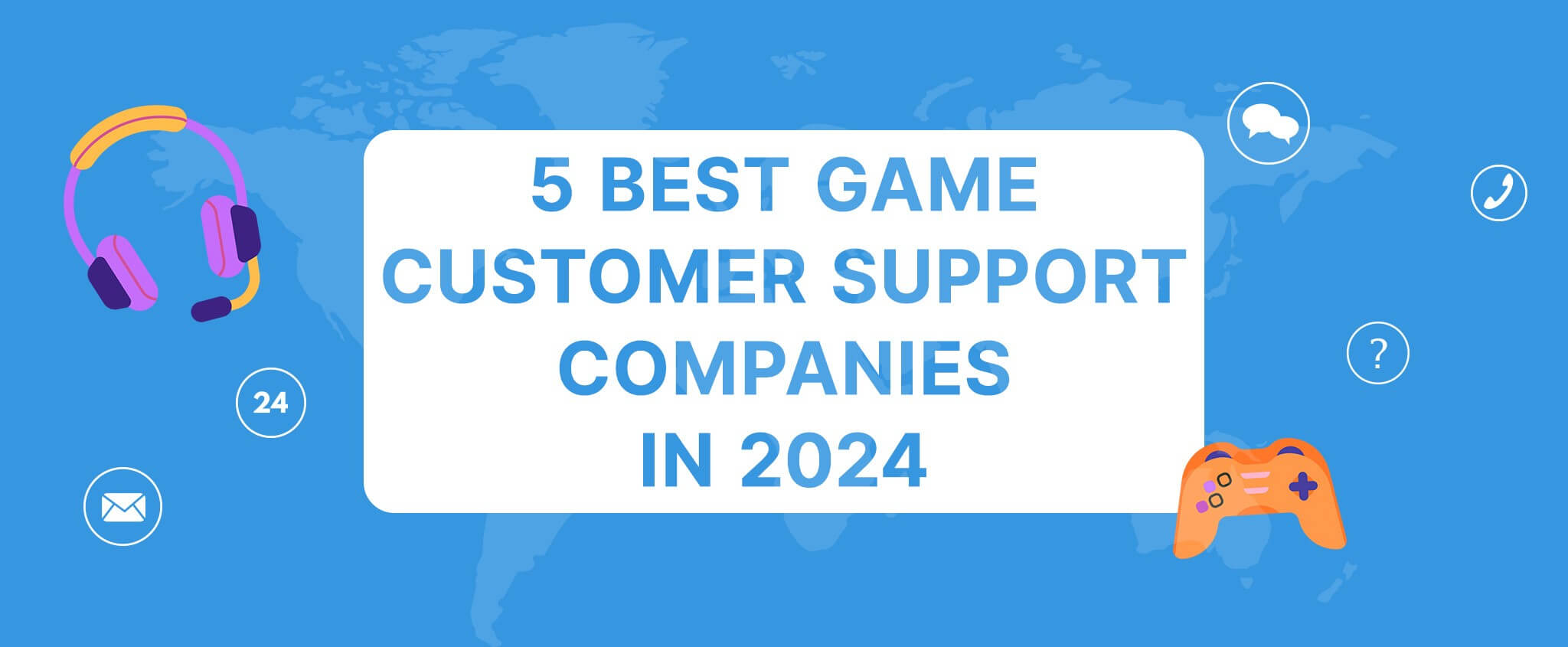The Future of Game Localization: Trends to Watch
Key takeaways
- Game developers prepare for exponentially high market growth in the future of game localization.
- Most game localization trends 2024 has to offer involve lucrative opportunities in emerging markets.
- Game localization services can look forward to growing demand as researchers forecast the market to reach billions by 2030.
Table of contents
- The Importance of Localizing Games
- The Future Trends of Game Localization
- Professional Game Localization
Given the global gaming market’s steady expansion, the future of game localization simultaneously grows. Research professionals expect the gaming industry to reach billions of US dollars by 2030. Accordingly, game developers study the latest trends as they aim for international success.
In this blog, we explore game localization trends in 2024. Understanding the nuances of such emerging trends gives insights into the essential strategies to secure diverse audiences. Let’s go through keys in making a global standout of a game.
What Is Game Localization? The Importance of Localizing Games
Some might ask, what is game localization? Is it truly that important? The answer is yes. Game localization is an intricate process. Language experts would adjust game content to meet their target market’s requirements. These requirements include linguistic preferences, cultural needs, and regulatory demands. By localizing games, developers can:
- Expand market reach: Localized games reach millions of potential players who have various cultural backgrounds.
- Enhance player experience: Localized games are immersive by being available in the player’s native language.
- Increases global appeal: Games adapted to various cultures stand out in the competitive gaming industry.
The Future Trends of Game Localization
Video game localization evolves with the gaming industry’s advancements. Major trends influence the global gaming market in 2024. Here’s a closer look at what’s shaping the future of game localization:
Increased Cultural Adaptation With an Emphasis on Contextual Translation
Among the game localization trends 2024 has in store is the heightened focus on cultural adaptation. Successful video game localization services go beyond mere translation. Instead, professionals adjust game content culturally.
Every target audience of gamers has preferences and expectations. By adjusting game content, experts align with the audience’s cultural values. For example, cultural adjustments may include modifying symbols that appear in-game.
After all, some images might have negative connotations in one culture despite being harmless in another. Thus, maintaining the game’s original intentions while keeping it culturally relevant becomes a challenge for the localization team.
As such, the team must have translators with extensive knowledge about the game and the target audience. Understanding the plot, characters, settings, and overall game concept allows for more accurate and immersive translations.
This contextual translation ensures that the localized game maintains the original intent and feel, which is crucial for player engagement. Video game localization now prioritizes detailed briefs and collaboration between developers and translators to achieve this goal.
Use of Advanced Translation Tools
Another 2024 industry trend is the increased reliance on advanced tools for game localization. Given the constant improvement of translation tools, more game localization providers are leveraging such technologies to manage large content volumes.
Common tools that experts use in the video game localization industry include computer-aided translation (CAT) technology. Primarily used in website translation workflows, this software application provides translators with suggestions to maintain consistency throughout the game text.
Another technology is translation management systems (TMS). These allow teams to manage their localization workflow in a centralized platform. Meanwhile, neural machine translation (NMT) technology uses artificial intelligence to help produce contextually accurate translations.
Essentially, localization teams embrace these technologies to streamline their operations. After all, automation is the main objective of these advanced translation tools. This way, they can handle the increasing complexity and scale of modern video games.
Although streamlining the translation process reduces time-to-market, accuracy remains a vital element of the final product. Professional game localization providers like CCCI ensure high-quality localization by maintaining efficient translations while leveraging automating software.
Pro-tip: Despite technological advancements, machine translators still make mistakes. In addition, they cannot always identify the most culturally appropriate translation. Thus, having human experts on the localization team remains critical in a successfully localized game.
Growth in Emerging Markets
Emerging markets are significant in the future of game localization. Some regions are becoming major players in the gaming industry. Those to watch include India, the Middle East, and South America.
Following market expansions in these areas, developers might want to consider addressing the demand for localized games. Particularly, game content in various native languages of these regions would meet these growing demands.
For instance, the developers for Assassin’s Creed Mirage included classical Arabic in the game. They intended to appeal to Middle Eastern players by giving them the option to play the game in authentic Arabic.
Arabic gaming communities commented on the game’s authenticity. On forums, several have praised the developer’s decision to hire native Arabic speakers to play the dubbed voices. Usually, native speakers can always identify when a performer is non-native as their accent gives them away. Consequently, it takes away from their experience.
Thus, understanding such regional preferences and linguistic nuances in game localization is important in providing a positive gaming experience. Developers must conduct thorough market research to identify the preferences of gamers in emerging markets. Accordingly, they can strategize to meet those demands.
Note: Tapping into the opportunities of emerging markets offers many benefits. For instance, it can boost a game’s global reach. Popularity among local players also can increase. Furthermore, representation of the target audience in games is good for the culture. With the localized Assassin’s Creed game using authentic Arabic, it can help players disassociate the language with traditionally negative undertones.
Continuous Testing and Iteration for More Flexible Game Design
Successful localization requires continuous testing and iteration, which is another 2024 key trend in the industry. Emphasis on this trend ensures that providers offer accurate content as the game updates.
Particularly, once players experience the game, their response is likely going to require certain updates on the localized content. Engaging with player feedback involves a constant immersion into player communities, whether through social media or forums.
Gaining valuable insights through iterative processes also ensures localized games stay relevant. If games remain enjoyable, they stay popular. Moreover, maintaining communication with players allows developers to troubleshoot potential localization errors quickly. This way, player satisfaction stays positive and localization maintenance is easy.
When it comes to simplifying localization tasks, trending game designs seem to be adopting more flexible architectures. Developers and designers work on their games with localization in mind from the beginning. Therefore, they avoid hard coding to streamline updates and modifications.
While this approach simplifies the localization process, the team also helps other teams adapt the game for their market. Significant redevelopments won’t be necessary if localization has been in the early plans of the game’s development.
Professional Game Localization
Partnering with a professional game localization provider is crucial for success. Companies like CCCI offer invaluable expertise in navigating the complexities of game localization. We stay updated with the latest game releases and trends, ensuring high-quality, culturally relevant content.
Professional localization service providers have access to the latest translation tools that only seasoned experts can manipulate. With these specialists on your side, you can focus on developing your game.
Given the lucrative future of game localization, consider partnering with experts who have a holistic understanding of the industry. This way, you can fully capitalize on the opportunities. Connect with our localization experts today.






